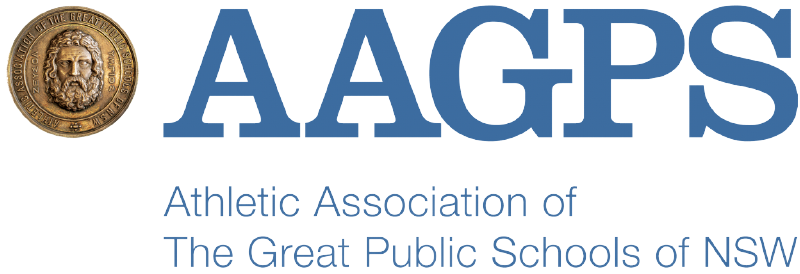AAGPS Code of Conduct
(Revised in 2023 by the Headmasters of the GPS Schools of NSW)
INTRODUCTION
The AAGPS was established to provide organised games between schools of similar educational aspiration.
This document declares that it is the aspiration of the AAGPS to achieve a healthy and exciting landscape of competition for our students which ensures that every fixture in every sport across the range of AAGPS competitions should be genuinely well matched and truly competitive.
The motto of the Association is “Unity in Diversity”, and games in our schools are an important part of a fully balanced education for our students. The Heads are concerned to preserve sound educational and social practices in the many inter?school games that are played and rely upon the operation of school communities to ensure that these aims are realised. Sporting fixtures between schools should encourage collegiality, a sense of community and positive relations between member schools and their students. The AAGPS Code of Conduct outlines the spirit of the Association and serves as a guideline for all who participate in, or attend a fixture conducted under the aegis of the AAGPS.
The following features of the Association have developed over a long period and are to be valued and maintained:
1.1 Provision of well organised fixtures at appropriate venues
1.2 Competition held in good spirit with high expectations of conduct and sportsmanship
1.3 Management and coaching of teams conducted as far as possible by teaching staff
1.4 Lively and active communication among member schools in a forum ideal for the discussion of matters of common importance.
1.5 A spirit of co-operation in the context of comprehensive, high quality sporting competition for the students of Member Schools, thereby fostering ethical behaviour, team spirit, leadership and individual talent.
COMMON PRINCIPLES
The Heads of the AAGPS Schools have reaffirmed their commitment to the following principles:
2.1 We believe that all AAGPS sport is valuable. It exists for the benefit of the students and must assume its proper place alongside academic, spiritual, cultural and social development
2.2 Success at sport involves more than mere winning, which – while enjoyable and worthwhile – is only one of the potential benefits.
2.3 We all value our membership of the AAGPS. The Heads are committed to maintaining the strength of the Association. We acknowledge that actions taken by an individual school against the spirit of the AAGPS Code of Conduct have may adverse effects, both on the Association as a whole, and on the competitiveness of individual members.
CONDUCT OF FIXTURES
The trend towards professionalism in school sport is to be viewed with caution. Where such an approach involves sound coaching techniques and is aimed at producing a satisfying and improved level of performance, this approach can be beneficial. However, care should be taken to exclude from our schools practices which place the pursuit of victory above those aspects of sport concerned with enjoyment, balanced development and good sportsmanship. In other words, the spirit of the amateur, in its best sense, should remain the ideal which guides these aspects of school sports.
In order to maintain the integrity of the AAGPS, the following guidelines are to be adhered to by players, coaches, spectators and schools at all times.
GUIDELINES FOR PLAYERS
3.1. Play may be hard and vigorous, but deliberate violence should never be used towards opponents.
3.2 No person shall act towards or speak to any other person in a manner, or engage in any other conduct which threatens, disparages, vilifies or insults another person (the person vilified) on any basis, including but not limited to a person’s race, religion, colour, descent or national or ethnic origin, special ability/disability or sexual orientation, preference or identity.
3.2 Players should not react with violence to any physical or verbal provocation.
3.3 Use of bad language, where directed at an umpire/referee, another player or oneself, is unacceptable.
3.4. Players should never argue with an umpire/referee (whether student or adult) or contest a decision. Any negative response towards an umpire’s ruling is unacceptable. (A Captain - only - may ask a referee to clarify a ruling in the event of uncertainty.)
3.5 Immodest behaviour in victory or success, and manifestation of self-disgust at an error or failure are poor sportsmanship. Gracious conduct, whatever the result of a game, is required.
3.6. Unfair or illegal tactics to gain an advantage should never be used.
3.7 Excessive, inappropriate or derogatory talk should not be used on the field of play.
3.8 Players are encouraged to play in a positive and sportsmanlike manner and to extend every courtesy to the opposing team. This includes pre-match courtesies, recognition of good play on the part of the opposition and extending thanks to the umpire/referee and to the opposition and extending thanks to the umpire/referee and to the opposition after the match.
GUIDELINES FOR COACHES
4.1. All coaches should ensure that they are fully aware of the expectations and practices of the school in which they are coaching and be responsive to them. Coaches should remember that school sport plays an important role in a student’s education and is for the benefit of students rather than adults.
4.2 Coaches should teach sound sportsmanship along with games skills; high standards of conduct and respect are integral to school sport and consistent with the values of the AAGPS.
4.3. Coaches are asked to bear in mind that school students need guidance. They need to make clear the school’s expectations regarding courtesies, punctuality, behaviour and dress.
4.4. Leadership and responsibility are the province of both the Coach and the Captain, on and off the field. Coaches have a particular responsibility to set standards and to work with the Captain to see them acknowledged at all times. (It is acknowledged that traditions and practices differ between codes, for example basketball cricket and rugby, respectively.)
4.5. Coaches should not engage in excessive and ritual “psyching up” of a team.
4.6. If a match is lost, coaches should avoid giving the impression always that it could have been won if the team had played with more determination. Similarly, coaches should avoid stating or giving the impression to players that bad refereeing decisions cost them the game.
4.7 Coaches should avoid any hint of criticising the umpiring or refereeing of a match - particularly in front of students or parents.
4.8 A coach’s aim should be always to coach in such a way that students are able to learn for themselves.
4.9. Coaches are encouraged to establish and regularly to renew cordial relations with the coaches of opposing teams.
GUIDELINES FOR PARENTS AND SPECTATORS
5.1 Parents and spectators are asked to make their presence positive and supportive at all times.
5.2. Host schools are expected to assume responsibility for making visiting parents feel at home.
5.3 When visiting another school, the host school’s premises and rules must be adhered to at all times. Adults are asked to note that, alcohol should not be consumed at any time at AAGPS fixtures and events unless with the express permission of the host school or the AAGPS. If in doubt about such matters, visiting parents and spectators should check with an official of the host school.
5.4 Parents and spectators should never seek, during or immediately after a match, to give advice to coaches, umpires/referees or to players.
5.5 Barracking may be enthusiastic, should be positive rather than negative, avoiding excessive attention to the individual - even to praise him. A good example should be set by applauding skilful performance, play and sportsmanship regardless of school.
5.6 Parents are encouraged to assist their son’s education by being sensible about the number and length of his sporting commitments. While these are regulated within the school context, parents should see that other, outside sporting involvement does not interfere unduly with academic study, religious activities, cultural and social life, as well as time spent with the family.
GUIDELINES FOR SCHOOLS
6.1 Heads of schools, through their Sportsmasters and Masters in charge of sports, will foster sound attitudes towards sport in players, coaches and spectators.
6.2 Host schools will ensure all fixtures are conducted in accordance with the AAGPS Duty of Care Guidelines contained within the AAGPS Constitution.
6.3 Visiting teams should be met courteously and shown the facilities they will use. Forfeiting matches is to be avoided wherever possible. Early notification is an important courtesy in the event of inability to field a team.
6.4 Schools are to regard themselves as responsible for the conduct of their supporters, whether parents, students or Old Boys.
6.5 In non-competition games, it is expected that a player will play in only one game per day, except where replacing an injured or absent player, at an appropriate level.
6.6 In the selection and training of students in teams and crews, the wellbeing of the individual student shall remain paramount.
6.7 It is affirmed that the Head of each school is responsible for knowing the special circumstances relating to the admission of students to their school.
6.8 While allowing for some exceptional circumstances, it is believed that it is best educational practice for a student to engage in multiple sports throughout the year.
6.9 Whilst it is the separate business of each member school to decide upon its own admissions and enrolment policies and procedures, member schools will ensure that teams at all levels will be selected in accordance with the guiding aspiration of this Code of Conduct, namely “that every fixture in every sport across the range of AAGPS competitions should be genuinely well matched and truly competitive.”

